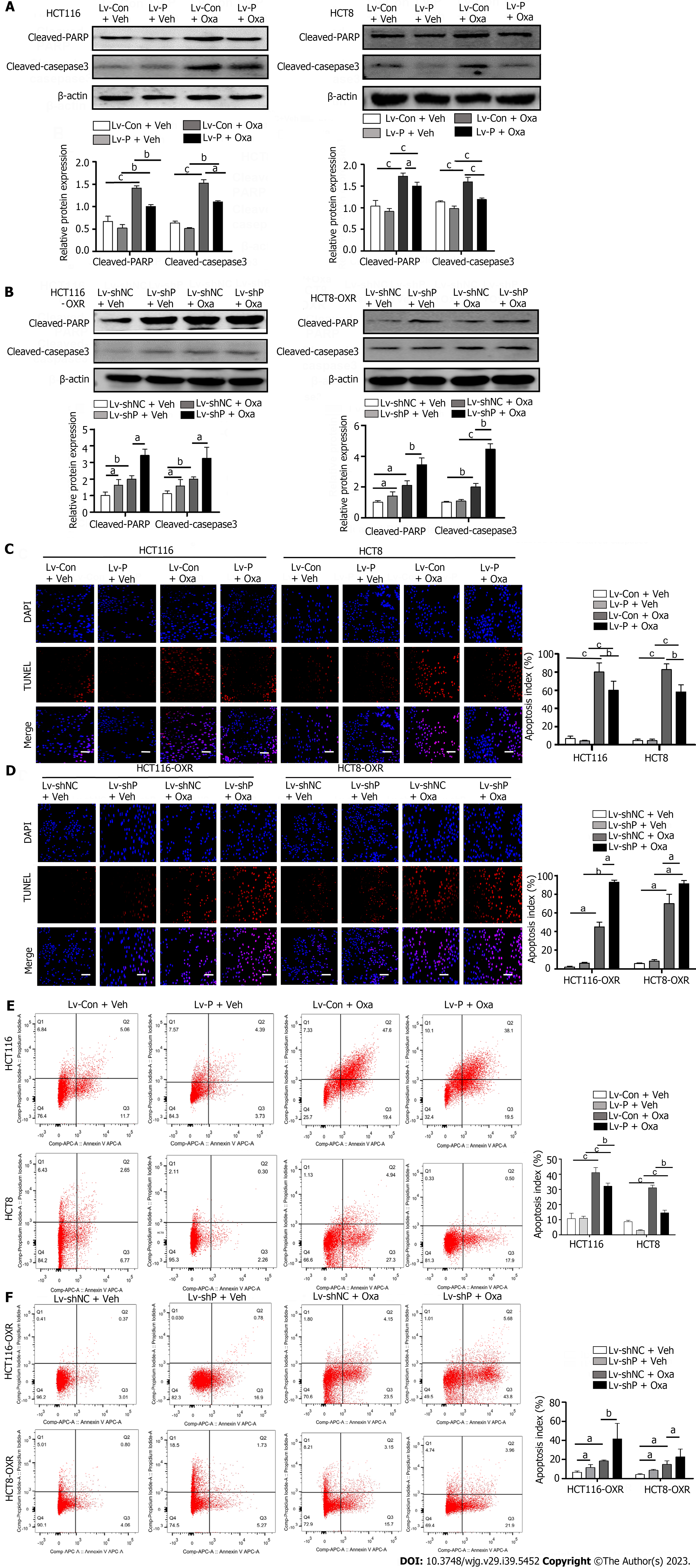Copyright
©The Author(s) 2023.
World J Gastroenterol. Oct 21, 2023; 29(39): 5452-5470
Published online Oct 21, 2023. doi: 10.3748/wjg.v29.i39.5452
Published online Oct 21, 2023. doi: 10.3748/wjg.v29.i39.5452
Figure 3 Prostaglandin F2α synthase suppresses apoptosis induced by oxaliplatin in colorectal cancer cell lines.
A and B: Western blot analysis showed cleaved poly ADP-ribose polymerase and cleaved caspase-3 were assessed in colorectal cancer (CRC) cells or in oxaliplatin-resistant (OR) CRC cells; C and D: Apoptosis of parental and OR CRC cells evaluation by terminal deoxynucleotidyl transferase dUTP nick end labeling assay, scale bar 100 μm; E and F: Apoptosis was measured by the Annexin V-PI staining in parental and OR CRC cells. aP < 0.05, bP < 0.01, cP < 0.001. Oxa: Oxaliplatin; PARP: Poly ADP-ribose polymerase.
- Citation: Wang YJ, Xie XL, Liu HQ, Tian H, Jiang XY, Zhang JN, Chen SX, Liu T, Wang SL, Zhou X, Jin XX, Liu SM, Jiang HQ. Prostaglandin F2α synthase promotes oxaliplatin resistance in colorectal cancer through prostaglandin F2α-dependent and F2α-independent mechanism. World J Gastroenterol 2023; 29(39): 5452-5470
- URL: https://www.wjgnet.com/1007-9327/full/v29/i39/5452.htm
- DOI: https://dx.doi.org/10.3748/wjg.v29.i39.5452









